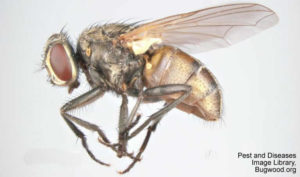Natural Control
go.ncsu.edu/readext?562326
en Español / em Português
El inglés es el idioma de control de esta página. En la medida en que haya algún conflicto entre la traducción al inglés y la traducción, el inglés prevalece.
Al hacer clic en el enlace de traducción se activa un servicio de traducción gratuito para convertir la página al español. Al igual que con cualquier traducción por Internet, la conversión no es sensible al contexto y puede que no traduzca el texto en su significado original. NC State Extension no garantiza la exactitud del texto traducido. Por favor, tenga en cuenta que algunas aplicaciones y/o servicios pueden no funcionar como se espera cuando se traducen.
Português
Inglês é o idioma de controle desta página. Na medida que haja algum conflito entre o texto original em Inglês e a tradução, o Inglês prevalece.
Ao clicar no link de tradução, um serviço gratuito de tradução será ativado para converter a página para o Português. Como em qualquer tradução pela internet, a conversão não é sensivel ao contexto e pode não ocorrer a tradução para o significado orginal. O serviço de Extensão da Carolina do Norte (NC State Extension) não garante a exatidão do texto traduzido. Por favor, observe que algumas funções ou serviços podem não funcionar como esperado após a tradução.
English
English is the controlling language of this page. To the extent there is any conflict between the English text and the translation, English controls.
Clicking on the translation link activates a free translation service to convert the page to Spanish. As with any Internet translation, the conversion is not context-sensitive and may not translate the text to its original meaning. NC State Extension does not guarantee the accuracy of the translated text. Please note that some applications and/or services may not function as expected when translated.
Collapse ▲Natural control refers to the control of insects provided by natural processes, without human involvement. Although insects can seem very abundant at times, their populations are actually much lower than they would be if it weren’t for this natural control.
If it Weren’t for Natural Control We’d be Swimming in Bugs!
 Insects can reproduce very quickly. Let’s take for example the common housefly. These flies can complete a generation (egg to larva to pupa to adult) in less than two weeks under ideal conditions and produce approximately 300 young per female. Theoretically, if you started with two flies (male and female) under ideal conditions, after one generation you would have 300 flies, and each female would produce 300 offspring. After only two generations you would have 90,000 flies that in turn would produce 6.8 million offspring, etc. If this continued for just nine generations (approximately four months), there would be enough flies to cover the entire land surface of the United States three feet deep in flies. This never happens, of course, because populations of flies, like other insects, are kept in check by natural control.
Insects can reproduce very quickly. Let’s take for example the common housefly. These flies can complete a generation (egg to larva to pupa to adult) in less than two weeks under ideal conditions and produce approximately 300 young per female. Theoretically, if you started with two flies (male and female) under ideal conditions, after one generation you would have 300 flies, and each female would produce 300 offspring. After only two generations you would have 90,000 flies that in turn would produce 6.8 million offspring, etc. If this continued for just nine generations (approximately four months), there would be enough flies to cover the entire land surface of the United States three feet deep in flies. This never happens, of course, because populations of flies, like other insects, are kept in check by natural control.
The economic value of natural control is huge. In the United States each year, the value of natural control of native insect pests attributable to predatory and parasitic insects has been estimated at $4.49 billion (Losey and Vaughan 2006). This is an often overlooked, free benefit from beneficial insects.
How Does Natural Control Happen?
Natural control refers to the maintenance of insect populations within certain bounds by environmental conditions, or factors. Both non-biological and biological factors contribute to the natural control of insects. These include:
- Physical factors such as weather (e.g. cold winters can reduce some insect populations).
- Quality and quantity of available food.
- Competition between species or among individuals of the same species.
- Amount and quality of living space or territory.
- Natural enemies such as predators and parasites.
Natural Control versus Biological Control
Beneficial insects are only one of many factors that keep insect populations in check. Natural control by beneficial insects or other environmental factors happens regardless of whether humans are aware of it or not. Biological control is when humans purposely manipulate populations of beneficial insects to manage undesirable insects.
Insects That Provide Natural Control
Explore these beneficial insects categories to see some examples of beneficial insects that provide natural control.


